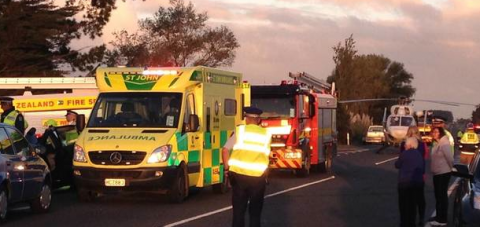
Cycling advocates are today criticising the Government's response to the recent spate of traffic deaths. Umbrella group Cycling Advocates' Network (CAN) expressed regret that expert advice on speed limits is being brushed aside by a Government uninterested in providing a fit-for-purpose transport system.
Transport experts Michael Keall of Otago University and Glen Koorey of the University of Canterbury have both come out in support of lower speed limits. Assistant Police Commissioner Dave Cliff has agreed, and local government body TRAFINZ have gone so far as to call for a reallocation of funding from the Roads of National Significance projects to provide for safety on existing danger spots.
In the face of this clear advice from experts, from those charged with maintaining the roads, and the very personnel charged with preventing the carnage -and cleaning up afterwards- the Government's response is that they 'don't know that lowering speeds would do something'.
Interim project manager at CAN, Will Andrews, claims this is an inadequate response which reflects the poor transport strategies at the root of the problem. 'Current Government policies reward private car use, push for faster and bigger roads, and neglect safer -and ultimately cheaper- modes of transport'.
Transport choices were being denied to much of the country, Andrews argued: 'New Zealand is one of the most car-dependent countries in the world, with commuting rates of car use at 74%. Almost half of kiwis' commuting trips are less than 5km in length, an ideal distance for an easy cycle.' Cycling's actual modal share is 2%, and rates of bus and train use are low compared to OECD averages, said Andrews. 'Many, many trips we take by car today could be replaced by safer, more healthy transport that gives a better return for taxpayers' investments'.
While acknowledging that rural and inter-city roads serve longer journeys less suited to cycling, Andrews pointed out that inter-city transport options have steadily decreased, and that support for public transport was inadequate for both urban and inter-city journeys. Rail line has reduced from almost 6,000 km in 1953 to less than 4,000 now.
Will Andrews 021 02692724
